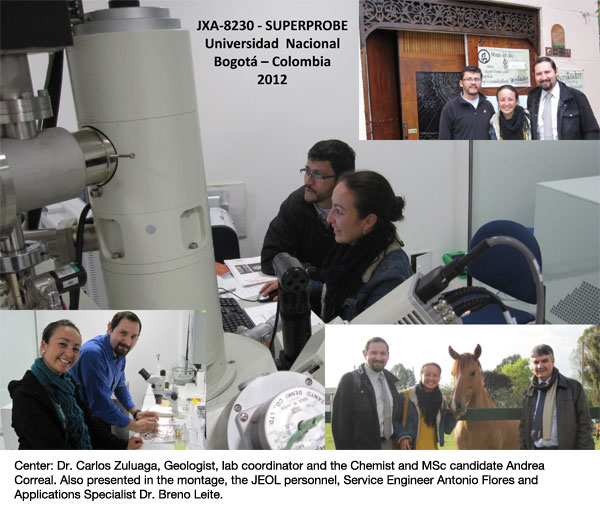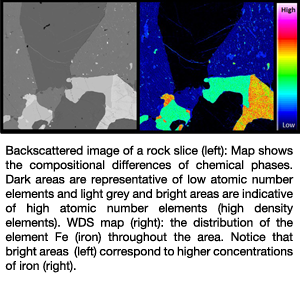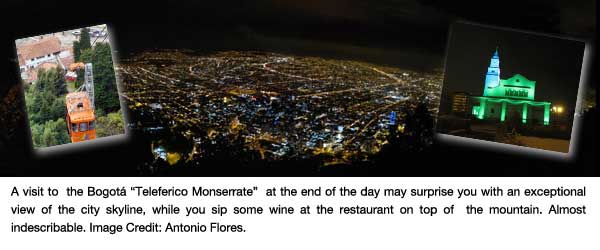
 The Department of Geosciences at The National University of Colombia (Bogotá) is one the vivid examples of how Latin America is investing massively in science and technology. The Department has recently acquired a JEOL Electron Probe MicroAnalyser (JXA-8230), a powerful tool to determine chemical qualitative and quantitate analysis in mineralogy and petrology. The laboratory is coordinated by Professor Dr. Carlos A. Zuluaga and the equipment is primarily operated by the young scientist Andrea L. Correal. Dr. Zuluaga has received his PhD from the University of Alabama, Tuscaloosa.
The Department of Geosciences at The National University of Colombia (Bogotá) is one the vivid examples of how Latin America is investing massively in science and technology. The Department has recently acquired a JEOL Electron Probe MicroAnalyser (JXA-8230), a powerful tool to determine chemical qualitative and quantitate analysis in mineralogy and petrology. The laboratory is coordinated by Professor Dr. Carlos A. Zuluaga and the equipment is primarily operated by the young scientist Andrea L. Correal. Dr. Zuluaga has received his PhD from the University of Alabama, Tuscaloosa.

Research in the lab is focused on applications related to earth sciences involving igneous and metamorphic petrology, ore geology, and stratigraphy. Examples of current research of lab members include provenance analysis, determination of pressure – temperature conditions of igneous and metamorphic rocks, and characterization of mineral associations in gold deposits.
A visit to Bogotá will reveal a country going through a transformation. Visitors from different parts of the globe, excitement in the air and fully booked hotels. One does not have to be an economist to understand that Colombia is growing, but if you like numbers: In 2011 Colombia's economy expanded at almost six percent, which was higher than many other countries in the region. Even though it is slowing down a bit, it is still considered one of the fastest expanding economies in the world. The tourism also growing and foreigners will have a chance to experience the rich and balanced cuisine, which maintains most Colombians in shape. The variety of juices using natural local and amazon fruits is a trip on itself and may naturally keep you away from soft drinks. The obesity rate in Colombia is only 13%.
